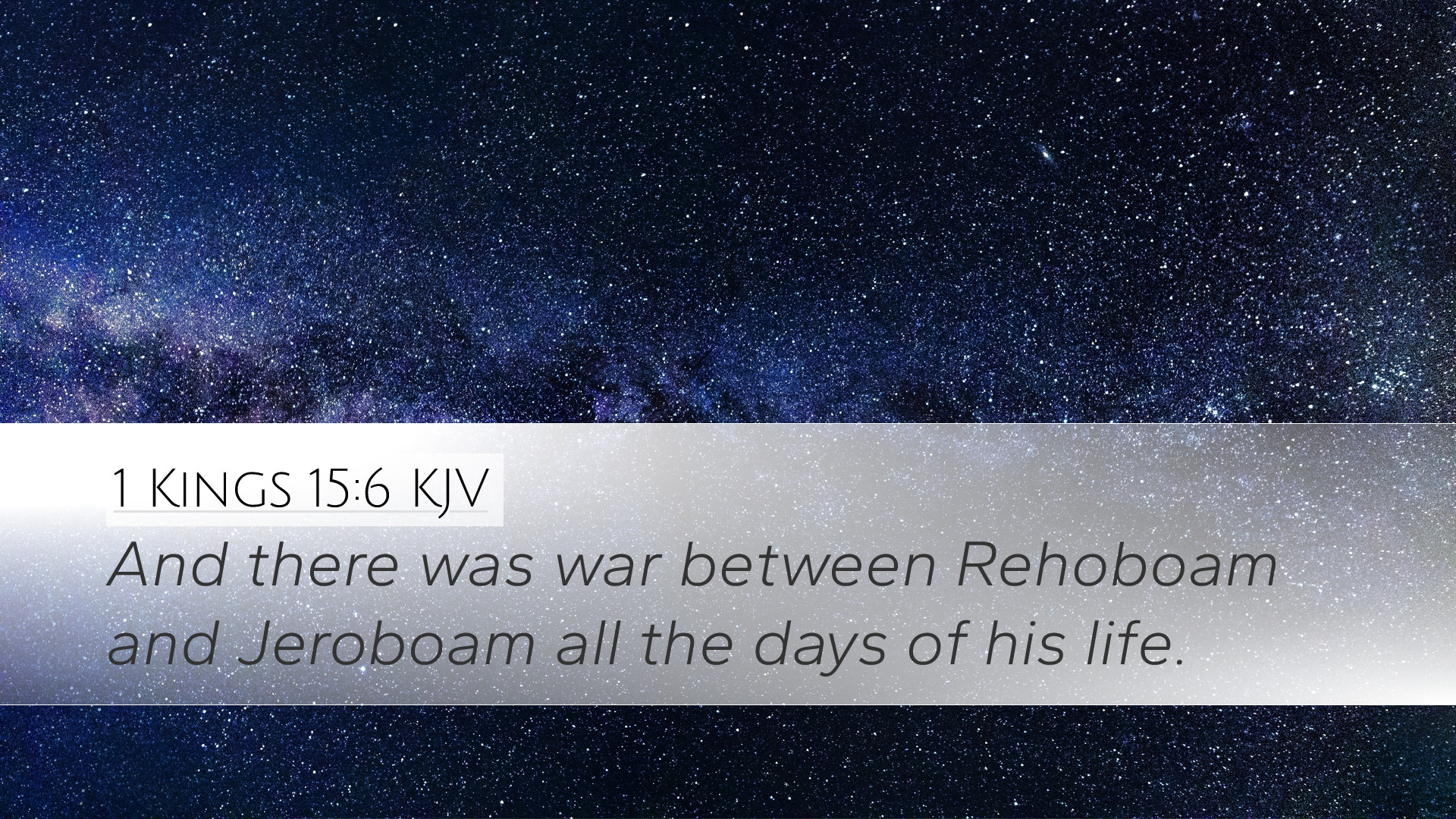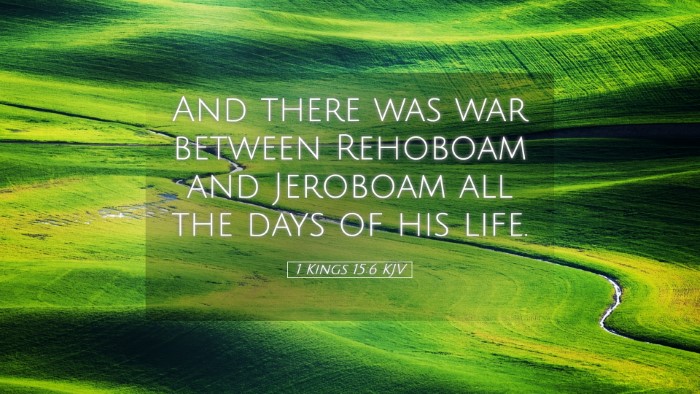Commentary on 1 Kings 15:6
Verse Context: 1 Kings 15:6 states, "And there was war between Rehoboam and Jeroboam all the days of his life." This verse serves as a critical junction in the narrative of the divided kingdom, providing insights into the conflict that arose after Solomon's reign.
Historical Background
The division of the kingdom of Israel into the Northern Kingdom (Israel) and the Southern Kingdom (Judah) is a pivotal historical marker. This schism directly relates to the reign of Rehoboam, Solomon’s son, and Jeroboam, whose rebellion formed a new dynasty. Rehoboam’s refusal to heed wise counsel upon ascending to the throne catalyzed the division, leading to longstanding hostilities.
Commentary Insights
-
Matthew Henry’s Perspective
Matthew Henry emphasizes the perpetual conflict between Rehoboam and Jeroboam as indicative of the spiritual and political turmoil that befell Israel following Solomon's era. He points out that this war reflects not only physical battles but also the deeper spiritual decline. Henry notes that the discord symbolizes the friction between the divine will and human politics, further elaborating that Rehoboam's failure to unite the kingdom stems from his unwise but unyielding stance toward his people.
-
Albert Barnes’ Interpretation
Albert Barnes focuses on the significance of the phrase "all the days of his life," implying a continuous state of warfare that characterized both Rehoboam's reign and the national psyche of Judah. He suggests that the division of Israel arose as a divine judgment against Solomon's idolatry. According to Barnes, the ongoing conflict serves both as a punishment and a catalyst for further regional disputes, highlighting the repercussions of sin and disobedience to God.
-
Adam Clarke’s Commentary
Adam Clarke provides a theological reflection on the consequences of Rehoboam's decisions, underscoring the absence of peace as a divine teaching mechanism. Clarke points out that God allowed the war as a demonstration of the futility of human ambition when it opposes divine will. He also refers to the prophetic perspectives surrounding the reign of these kings, explaining how such conflicts were deeply entrenched in spiritual consequences, which shaped the destiny of the nation.
Spiritual Lessons
This verse encapsulates several profound lessons for modern readers:
-
Consequences of Leadership Decisions:
Rehoboam’s choices demonstrate that leaders must lead with wisdom, compassion, and sensitivity to the needs of their followers. The continuation of conflict reflects a failure to address division among the people.
-
Spiritual Warfare:
The narrative transcends political strife to illustrate the ongoing spiritual battles that exist. The conflict symbolizes the larger spiritual war against sin, idolatry, and disobedience, urging believers to seek unity in Christ.
-
God's Sovereignty:
Ultimately, this passage reminds readers that God remains sovereign over nations and leaders. Despite the chaos, God is at work, fulfilling His purposes, even through human failures and discord.
Theological Reflections
The conflict between Rehoboam and Jeroboam encapsulates key theological themes:
-
The Nature of Sin:
The division itself was rooted in the sins of the previous generations, notably Solomon’s idolatry, illustrating how personal and national sins have cascading effects.
-
Divine Judgment and Mercy:
The ongoing warfare serves as a testament to both divine judgment on a nation that strayed from His ways and God's enduring mercy toward His covenant people.
-
Hope for Restoration:
Amidst conflict, the hope of restoration and eventual reunification in Christ remains a central tenet of biblical prophecy, encouraging believers to look beyond temporal struggles.
Conclusion
1 Kings 15:6 encapsulates the complexity of leadership, divine judgment, and spiritual warfare within the historical narrative of Israel. The insights from public domain commentaries highlight the interaction between personal decisions and broader national consequences. For pastors, theologians, and students of the word, this verse serves as a crucial reminder of the weight of leadership, the necessity for wise counsel, and the importance of aligning with God’s will in a world often marked by conflict and division.


